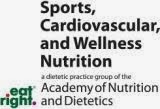Can the consumption of a
vegetarian or vegan diet in an endurance athlete impart a competitive edge over
a non-vegetarian athlete? And if so, what are the considerations of consuming a
plant-based diet and the advice offered to endurance athletes ready to make
that change? In this two part series on
fueling the vegetarian (vegan) athlete, we’ll address those important questions.
An endurance athlete is someone
who trains to condition their aerobic system for endurance and stamina
primarily for long distance events ranging from the half to full and ultra
marathons (13.1 to greater than 26.2 miles), sprint to Ironman and ultra distance
triathlons, duathlons (two endurance disciplines), metric, century or double
century cycling events, and even marathon or ultra-long swimming. Energy needs
for these individuals vary greatly and are dependent upon the frequency and
volume of training, body size, body composition, gender and specificity of
training environment (i.e., swimming in 56-degree Fahrenheit waters for 45
minutes or cycling over 134 miles in altitude of the Sierra Nevada’s).
Although vegetarian (or vegan)
endurance athletes reportedly struggle to maintain sufficient energy needs to
fuel their sport, the consumption of a vegetarian or vegan diet has also been
show to in increased benefits of ones health. Because many vegetarians and
vegans must consumer greater amounts of whole plant based foods (fruits,
vegetables, whole grains, legumes and pulses, nuts and seeds) to meet daily
energy requirements as well as macro and micronutrients needs, consumption of a
plant based diet increases intake of dietary fiber, antioxidants, phytonutrients,
and vitamins, while minimizing saturated fat and cholesterol intake. The health
benefits associated from consuming a vegetarian over a non vegetarian diet has
been shown to lower the risk of chronic diseases and death, including high
cholesterol (LDL), type 2 diabetes, high blood pressure, heart disease,
obesity, and certain types of cancer.
Yet, despite the health benefits
associated from consuming a plant-based diet, existing evidence supports
neither an advantage nor disadvantage in endurance performance. Regardless of
what research and science demonstrates, some vegetarian and vegan athletes
credit their athletic performance and recovery to the benefits attributed
consuming a vegetarian or vegan diet.
Most noted for their athletic
accomplishments and performance, some of these highly successful non-meat
eating athletes include:
·
Carl
Lewis (vegan): 9-time Olympic Track & Field gold medalist
·
Dr.
Ruth Heidrich (vegan): 6-time Ironman triathlon finisher, national age-group
winner, marathon runner (>60 completed) and cancer survivor
·
Brendan
Brazier (vegan): Former professional triathlete and 2-time Canadian 50km Ultra
Marathon champion
·
Martina
Navratilova (vegetarian): Professional tennis player and 18-time winner of the
Grand Slam singles
·
Scott
Jurek (vegan): Competitive ultra runner; 7-time winner of the Western States
100 and 2-time winner of Badwater 135-mile ultra marathon
Endurance sports are no longer
reserved for the well-trained, conditioned elite athlete. Triathlon, for
example, has seen an immense increase in popularity since its Ironman debut in
1978. Triathlon and marathon running alone has become more alluring and
accessible. Through the increased number
of charity based and local club group training programs, the number of age
group competitors has skyrocketed. As the realm of endurance sports continues
to grow and individuals inquire to learn more about fueling their sport, many
will chose to adopt a vegetarian or vegan lifestyle.
Whether turning a new leaf
towards a plant based diet or continuing to improve upon an already implemented
plan, our role as professionals is to assess and counsel the vegetarian and
vegan so that deficiencies remain at bay. Importance is placed on the planning
and preparing of consuming a plant based diet while ensuring that specific
energy, vitamin, and mineral needs are met.
In part II of this post, we’ll
dive into what those macro and micronutrients needs are and the energy
requirements associated with endurance athletics.
Sources:
(1)
Fuhrman,
Joel, and Deanna M. Ferreri. "Fueling the Vegetarian (Vegan)
Athlete." Current Sports Medicine Reports. 9.4 (2010):
233-241. Print.
(2)
Larson-Meyer,
PhD, RD, FACSM, D. Enette. "Vegetarian Athletes." Trans. Array Sports
Nutrition, A Practice Manual for Professionals. . 4th. American
Dietetic Association, 2006. 294-317. Print.
(3)
McArdle,
William D., Frank I. Katch, and Victor L. Katch. "Of Concern to
Vegetarians." Trans. Array Sports and Exercise Nutrition. .
2nd. Baltimore, MD: Lippincott Williams & Wilkins, 2005. 73-73. Print.
(4)
Nieman,
David C. "Physical fitness and vegetarian diets: is there a
relation?." American Journal of Clinical Nutrition. 17.3
(1999): 570s-575s. Print.
(5)
"Nutritional
Benefits." Pulse Canada. N.p.. Web. 11 Jul 2013. <http://www.pulsecanada.com/food-health/nutritional-benefits>.
(6)
Owusu-Apenten,
R.K.. "Food Protein Analysis, Quantitative Effects on Processing.”. The
Pennsylvania State University, (2002). Web. 11 Jul 2013.
<http://books.google.com/books?id=ArXJlJfl0gMC&pg=PA379&lpg=PA379&dq=quinoa
protein
score&source=bl&ots=EDCcUf5wtT&sig=EeOjNtvv8RPkflLi1wSLDApTtQo&hl=en&sa=X&ei=e5ezUPiKAomkiQL3toG4Dg&ved=0CE0Q6AEwBQ
Affectionately
known as “Coach D2” by her athletes, Dorette is a Senior Dietetics Student at San
Francisco State University specializing in whole food, plant based nutrition,
and sports nutrition. She holds coaching credentials with USA Triathlon and USA
Track and fields provides coaching to endurance athletes through Trifiniti Endurance.
She was the head coach and designed training programs for the Nike Women’s Marathon, the San Francisco Aid’s Foundation’s “Be Greater
Than One” San Francisco Marathon and Half Marathon training programs, and
has lead numerous runners and triathletes to PR’s, Boston Marathon qualifying
finishes, and the Ironman finish line. Her training tips have been published in
Runner’s World, Shape, and Women’s Health
Magazines. As a competitive age group endurance athlete, her racing
accomplishments include 1st in division at Ultraman Canada, representing Team
USA at the ITU Long Course Triathlon World Championship, and being a 5-time
Ironman finisher and two time Boston Marathon qualifier.


